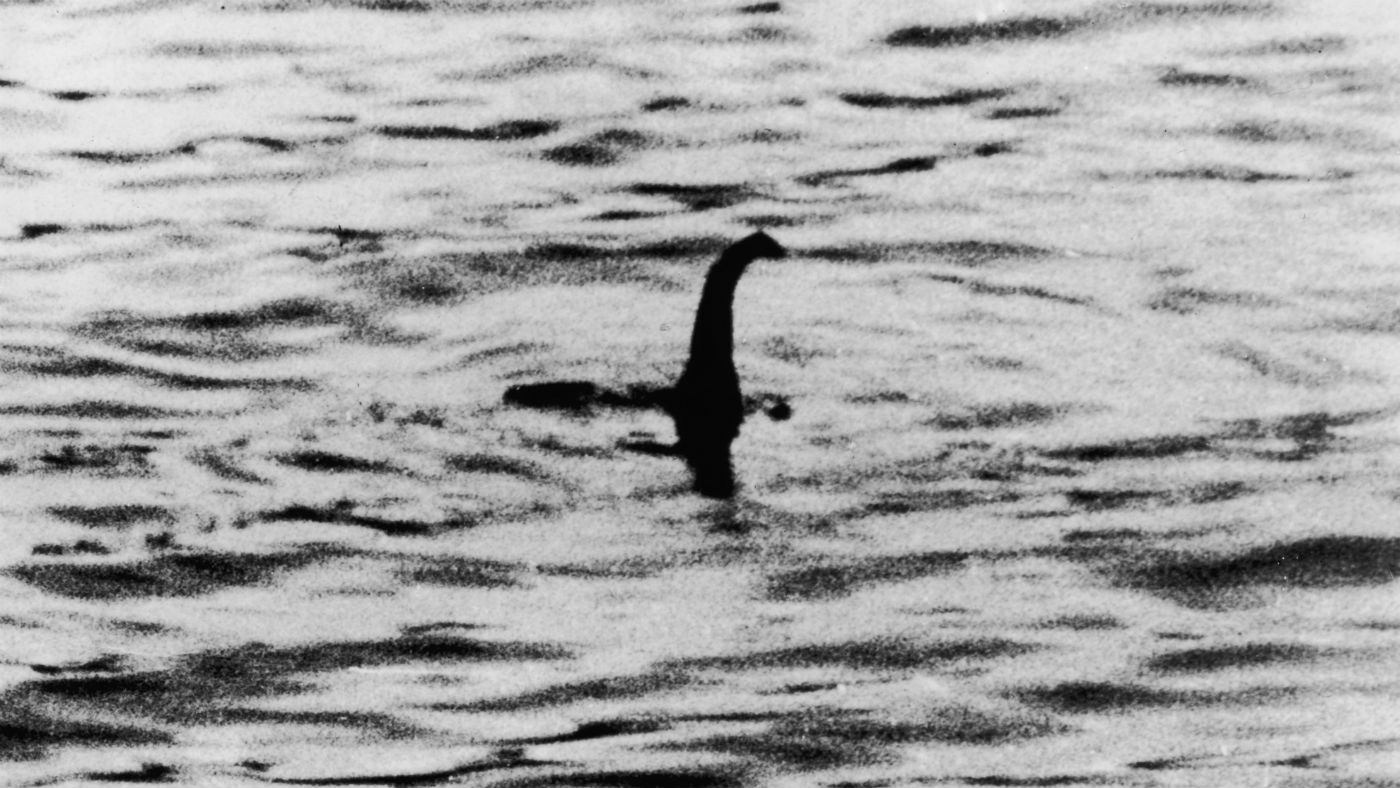New discovery makes Loch Ness Monster ‘plausible’
And other stories from the stranger side of life

A free daily email with the biggest news stories of the day – and the best features from TheWeek.com
You are now subscribed
Your newsletter sign-up was successful
The existence of the Loch Ness Monster is “plausible”, a British university has concluded. Scientists found fossils of small plesiosaurs – long-necked marine reptiles from the age of dinosaurs – in a 100-million-year-old river system in Morocco’s Sahara Desert. The finding suggests the reptiles may have lived in freshwater. Images and eyewitness accounts have suggested that the beast has a long neck and small head similar to a plesiosaur. However, said The Independent, sceptics have argued that plesiosaurs could not have lived in Loch Ness as they needed a saltwater environment.
Dogs ‘can understand intention’
Dogs may be able to understand our intentions, according to a new study. Researchers from the University of Veterinary Medicine in Vienna either fumbled and dropped dog treats or withheld them. They noted that the dogs appeared to recognise when they were being “clumsy” and when they were being “mean”, said The Times. “Our results… provide robust evidence that dogs distinguish between similar actions (leading to the same outcome) associated with different intentions,” said the team, which studied the responses of 96 dogs of various breeds and ages.
The Week
Escape your echo chamber. Get the facts behind the news, plus analysis from multiple perspectives.

Sign up for The Week's Free Newsletters
From our morning news briefing to a weekly Good News Newsletter, get the best of The Week delivered directly to your inbox.
From our morning news briefing to a weekly Good News Newsletter, get the best of The Week delivered directly to your inbox.
Hirst to burn his artworks
The artist Damien Hirst is to burn thousands of his paintings next month in a project focusing on art as currency. The Guardian said Hirst will destroy the artworks at his London gallery. Buyers were given the option of keeping NFTs or trading them in for the physical artwork. Those works which were not claimed in physical form will be burned on a daily basis from 9 September. Last year, Hirst said the project, titled The Currency, was an “interesting experiment”.
A free daily email with the biggest news stories of the day – and the best features from TheWeek.com
-
 Putin’s shadow war
Putin’s shadow warFeature The Kremlin is waging a campaign of sabotage and subversion against Ukraine’s allies in the West
-
 Media: Why did Bezos gut ‘The Washington Post’?
Media: Why did Bezos gut ‘The Washington Post’?Feature Possibilities include to curry favor with Trump or to try to end financial losses
-
 Magazine solutions - February 27, 2026
Magazine solutions - February 27, 2026Puzzle and Quizzes Magazine solutions - February 27, 2026
-
 Epstein files topple law CEO, roil UK government
Epstein files topple law CEO, roil UK governmentSpeed Read Peter Mandelson, Britain’s former ambassador to the US, is caught up in the scandal
-
 Iran and US prepare to meet after skirmishes
Iran and US prepare to meet after skirmishesSpeed Read The incident comes amid heightened tensions in the Middle East
-
 Israel retrieves final hostage’s body from Gaza
Israel retrieves final hostage’s body from GazaSpeed Read The 24-year-old police officer was killed during the initial Hamas attack
-
 China’s Xi targets top general in growing purge
China’s Xi targets top general in growing purgeSpeed Read Zhang Youxia is being investigated over ‘grave violations’ of the law
-
 Panama and Canada are negotiating over a crucial copper mine
Panama and Canada are negotiating over a crucial copper mineIn the Spotlight Panama is set to make a final decision on the mine this summer
-
 Why Greenland’s natural resources are nearly impossible to mine
Why Greenland’s natural resources are nearly impossible to mineThe Explainer The country’s natural landscape makes the task extremely difficult
-
 Iran cuts internet as protests escalate
Iran cuts internet as protests escalateSpeed Reada Government buildings across the country have been set on fire
-
 US nabs ‘shadow’ tanker claimed by Russia
US nabs ‘shadow’ tanker claimed by RussiaSpeed Read The ship was one of two vessels seized by the US military